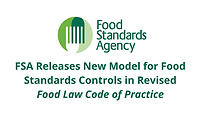Based on New Evidence, UK FSA Advises Consuming No More Than 10 mg CBD per Day From Foods

Image credit: Justin Aikin via Unsplash
The UK Food Standards Agency (FSA) is advising consumers to limit their consumption of Cannabidiol (CBD) from foods to 10 milligrams (mg) per day for healthy adults, which is approximately 4–5 drops of 5 percent CBD oil. The updated recommendation is significantly reduced from FSA’s previous opinion that 70 mg of CBD per day is safe.
The agency has not changed its stance that CBD should not be taken by people in vulnerable groups, including children, people taking medication who have not consulted a medical professional, and those who are pregnant, breastfeeding, or trying to conceive. The novel food status of CBD extracts was confirmed in January 2019 and all CBD food products must apply for authorization before they can be legally sold in Great Britain.
The change in precautionary advice is based on new evidence from industry and the latest findings of the FSA Advisory Committee on Novel Foods and Processes (ACNFP). The average lifetime exposure to food products containing CBD—such as drinks, oils, sweets, bakery items or drops—is considered in the updated advice. Because products available on the market have a higher dose of CBD per serving than 10 mg a day, FSA suggests consumers check labels and consider their daily intake in light of the updated advice.
According to FSA, although there is no acute safety risk with consuming more than 10 mg of CBD per day, there is evidence that the more CBD a person consumes over their lifetime, the more likely a person is to develop long-term adverse effects like liver damage or thyroid issues. The level of risk is related to how much is consumed on a regular basis, similar to other potentially harmful products like alcoholic drinks.
FSA recognizes that the change in its advice will have implications for products currently on the market that contain more than 10 mg of CBD per serving. The agency intends to work with industry to minimize risk and ensure consumers are not exposed to potentially harmful levels of CBD.
In February 2020, FSA published consumer advice recommending that healthy adults do not exceed 70 mg of CBD per day, based on limited evidence where CBD was studied as a medicine, and where the dosage was determined by balancing the benefit of the drug with the potential side effects. Since the initial advice was released, the agency asked the CBD industry to provide data on CBD use in food as part of a safety assessment.
A joint subgroup of the Committee on Toxicity (COT) and ACNFP, two independent science committees that advise FSA, have been reviewing the safety evidence submitted by the CBD industry as part of novel foods applications. With the new evidence, the subgroup recommended an acceptable daily intake (ADI) of 0.15 mg per kilogram (kg) of bodyweight per day, or 10 mg of 98 percent pure CBD per day for an average weight adult.
The updated advice takes into account a review of the evidence provided by industry and FSA’s independent scientific committeesLooking for a reprint of this article?
From high-res PDFs to custom plaques, order your copy today!







